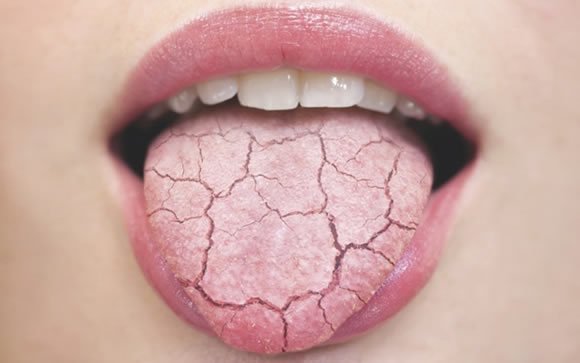Xerostomia — with such a complicated name, it sounds like a rare or exotic disease. But you may know it by another name: dry mouth. You may be surprised that scientists bothered to come up with an elaborate medical term for such a common condition, but dry mouth can actually lead to a number of more serious health concerns.
Dry mouth simply refers to a reduced flow of saliva and may lead to difficulty swallowing and speaking, chronic sore throat, hoarseness, frequent thirst, oral yeast infection or dried nasal passages.
Although it may initially seem harmless, make sure to let your doctor know if you notice prolonged dryness.
Finding Salivation
Dry mouth may be caused by a number of factors including medical conditions like anemia or diabetes, dehydration, smoking or chewing tobacco, and nerve damage to injuries to the head or neck.
It’s also a common side effect of many prescription and over-the-counter medications. Make sure to read the labels of any product you take regularly to see if dry mouth is likely to occur.
Your dentist can recommend several strategies to increase your saliva flow. Along with an artificial saliva solution, such as Biotene® or Oasis®, you may be advised to try:
- Sucking on sugar-free candy to stimulate saliva
- Increasing your daily fluid intake
- Buying a vaporizer to increase moisture in the air
- Trying to breathe through your nose as much as possible
- Using an alcohol-free oral rinse
- You may also consider limiting your caffeine consumption or cutting back on habits such as smoking that may contribute to your dry mouth.
Don’t Leave Your Teeth Out to Dry!
Without enough saliva to rinse away food and neutralize acids produced by bacteria, your teeth may be at increased risk of dental problems such as cavities, so it’s important to take special care to brush and floss thoroughly between meals. Dry mouth can also contribute to bad breath, prevent dentures from adhering properly, and make your mouth more susceptible to infection.
If dry mouth becomes a persistent problem for you, your dentist may want to prescribe additional fluoride to help prevent tooth decay, suggest methods to increase your salivation and screen for other potential health issues.

